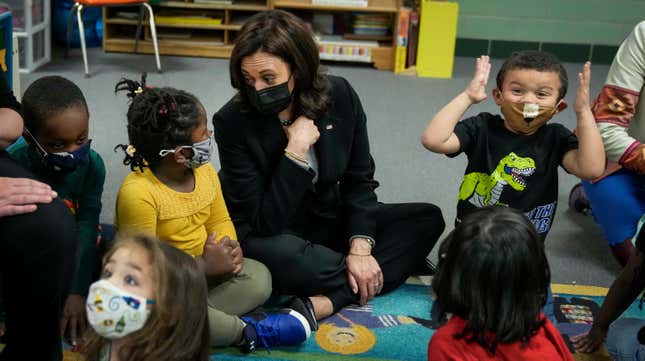Republicans Come Out Against Universal Daycare, Saying It's for Soviets and Abnormal People
Politics

On Wednesday night, as President Biden delivered his first speech before a joint session of Congress, Republican Senator Marsha Blackburn was busy tweeting. “Biden’s plan is a total government takeover,” read one tweet. “American Jobs Plan… In socialist countries they call it central planning,” read another. But the most mind-numbing tweet was in response to Biden’s universal daycare plan.
“You know who else liked universal day care,” Blackburn wrote, followed by a link to a 1974 New York Times article about the daycare system in the Soviet Union, a heavily subsidized state-run program that allotted mothers to work outside of the home.
Biden’s $1.8 trillion American Family Plan includes a $200 billion investment in universal pre-K, funded in large part from increased taxes on the wealthy. CNN reports that, “The proposal will direct the funds toward universal pre-school for all three- and four-year-olds through a national partnership with states.” According to an administrative official, the universal pre-K program will prioritize “high-need areas” as well as “lower student-to-teacher ratios” and a “developmentally appropriate curriculum.”
According to Blackburn, this is simply Soviet-style communism.
But if Blackburn was hoping that the article she linked to was a damning look into the world of state-run childcare, she didn’t succeed. While the piece took on a skeptical and condescending tone, depicting Soviet women as preternaturally obsessed with labor and unfamiliar with hobbies, quotes from the mothers revealed that their decision to use daycare was perfectly reasonable and comparable to the rationale any American working woman would have today.
From the New York Times, emphasis ours:
-

-

-

-

-

-

-

-

-

-

-

-

-

-

-

-

-

-

-

-

-

-

-

-

-

-

-

-

-

-

-

-

-

-

-

-

-

-

-

-








































